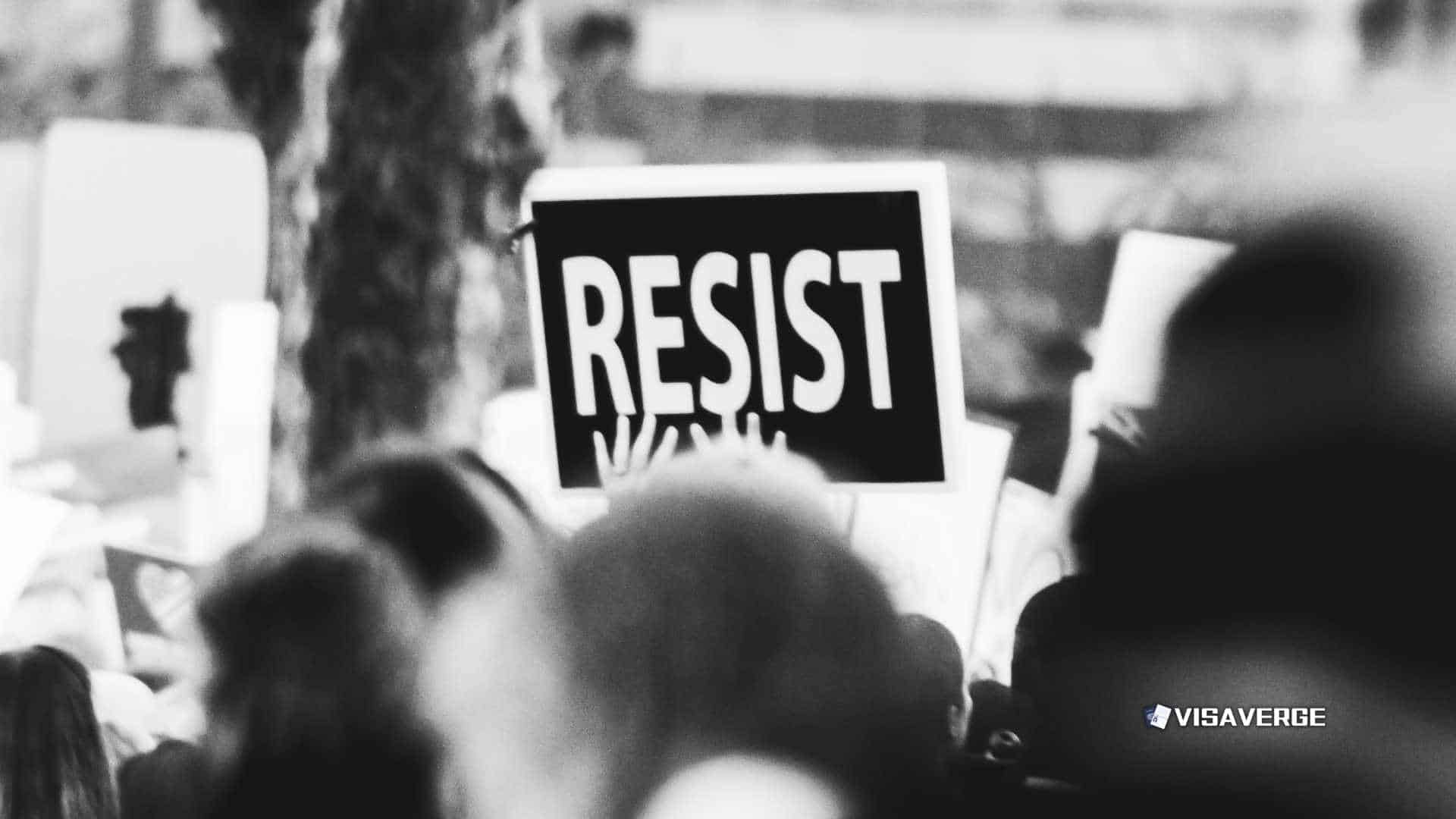(UNITED STATES) A sweeping rollback of safety net programs in 2025 is pushing large numbers of asylum seekers and refugees into homelessness, with advocates warning of a worsening humanitarian crisis as winter approaches.
In the United States, the new One Big Beautiful Bill Act, signed on July 4, 2025, eliminated access for resettled refugees and people granted asylum to food assistance (SNAP), healthcare, and other support services, while federal funding for refugee resettlement agencies was abruptly halted earlier this year. Australia has followed a similar path, slashing its main support program for people waiting on asylum outcomes and tightening rules so sharply that most are now excluded.

According to service providers, the cuts in both countries have stripped away the basic supports—food, shelter, and medical care—that help newly arrived families stabilize and find work. VisaVerge.com reports that the scale and speed of the changes have overwhelmed local systems and charities, which are now the last line of help for people with no income, few connections, and no legal path to mainstream benefits.
Policy changes driving the crisis
In the United States, the One Big Beautiful Bill Act terminated longstanding eligibility for SNAP, Medicaid-linked healthcare, and related services for resettled refugees and asylees. Federal funding tied to refugee resettlement, including Transitional and Medical Services and Refugee Support Services, was also removed in the FY 2026 budget.
Agencies that once helped recent arrivals find housing, enroll kids in school, and get to medical appointments lost funding in early 2025, leaving more than 22,000 newcomers without help at a critical time. With these programs dismantled, families who arrived lawfully through U.S. screening or who were granted asylum by U.S. officials are now facing empty fridges, unpaid rent, and worsening health.
Cities and states have tried to respond, but many have also moved to limit how long migrants can stay in shelters, arguing they lack funds and space as federal aid dwindled. That shift has pushed more people onto the streets or into overcrowded, unsafe rooms.
- Asylum seekers accounted for about 60% of the unprecedented 43% rise in sheltered homelessness in the U.S. between 2022 and 2024.
- The crisis is concentrated in New York City, Chicago, Denver, and Massachusetts.
- In New York City alone, by January 2024, shelters housed 89,119 people, including 34,057 asylum seekers.
Australia has taken a parallel turn. The federal government cut the Status Resolution Support Services (SRSS) safety net budget by 60% over two years, then applied tighter eligibility that requires medical evidence to prove vulnerability.
- SRSS once covered basic income support, subsidized medication, and casework for those waiting—often for years—for decisions on their asylum claims.
- Now, most are excluded.
- Frontline services say requests for emergency food and housing have surged, with families and children going hungry and health problems worsening.
- In Sydney, nearly 20% of people sleeping rough are non-residents on uncertain visas, including asylum seekers.
Community groups are overwhelmed, providing food, emergency beds, and healthcare with little or no government funding.
Impact on families and local systems
The combined effect is stark: removing or restricting safety nets has created a humanitarian crisis.
People who arrived with strong motivation to work are stuck instead in a daily struggle to eat, find a place to sleep, and stay healthy. Parents skip meals so children can eat. Workers accept unsafe jobs because they can’t wait for proper papers or training. Long waits for asylum hearings and visa decisions add to the strain, leaving thousands in limbo and unable to plan beyond a few days.
Local charities, faith groups, and mutual aid networks are doing what they can:
- Distributing food boxes and hot meals
- Placing families in temporary motel rooms when shelters are full
- Offering basic medical care and prescriptions
- Providing bus cards and winter clothing
But leaders say the gap is too wide. Without federal support, they cannot meet demand.
- Shelters report longer lines and no available beds.
- Food banks see rising need among newcomers and long-time residents alike.
- Hospital emergency rooms feel the pressure as untreated illnesses worsen.
- In Australia, caseworkers report clients stopping needed medication because they can’t pay, risking severe health setbacks.
In the United States, the loss of SNAP—the main federal food program—hits especially hard. For newly arrived refugees and people who have just won asylum, SNAP meant groceries while they searched for steady work. Now, many face choosing between rent and food.
- Teachers report hungry students struggling to learn.
- Employers report higher no-show rates among workers who are couch-surfing or sleeping in buses.
- Landlords grow wary of renting to newcomers who lack steady income or official supports.
City responses, legal context, and what comes next
City governments have tightened shelter stay limits to manage crowding, arguing they have no choice because federal funding dried up. Advocates warn that time limits without alternative housing simply push people onto sidewalks.
In places like Chicago and Denver, this has created a moving crisis: families rotate through short shelter stays, short-term rentals, then street encampments.
Advocacy organizations, researchers, and service providers share a clear message: the cuts are the main driver of the surge in homelessness and destitution among asylum seekers. They’re calling for the urgent restoration of food aid, healthcare access, and transitional supports to stop the slide. They also want faster and more transparent processing so people aren’t left without status—and without help—for years.
For context on earlier federal programs that once supported newcomers, readers can review the U.S. Office of Refugee Resettlement’s mission and services at the Department of Health and Human Services’ Office of Refugee Resettlement. That page outlines the federal role in resettlement, integration, and early self-sufficiency—roles that local providers say were essential to preventing homelessness.
“This crisis is not about a lack of effort. Many asylum seekers hold degrees or trades and want to work. The problem is structural: exclusion from essential services at the very moment when people are most vulnerable.”
Policy recommendations offered by experts
Policy experts suggest several near-term steps that could reduce harm while broader debates continue:
- Restore limited, time-bound SNAP access for resettled refugees and people granted asylum.
- Reopen funding for refugee resettlement case management focused on housing and job placement.
- Allow flexible use of city and state funds to extend shelter stays for families with children.
- In Australia, ease SRSS eligibility so people with clear needs aren’t shut out by paperwork hurdles.
Urgency and closing outlook
As the year closes, service agencies warn that the window to prevent further suffering is narrowing.
- Food banks report bare shelves.
- Shelter directors say they have no beds left.
- Doctors caution that untreated conditions are getting worse.
- Families—many with children—face the cold with no stable place to sleep.
Advocates stress that restoring basic supports now could prevent a deeper, longer-term humanitarian emergency.
This Article in a Nutshell
In 2025, sweeping policy changes in the United States and Australia removed or sharply curtailed safety-net programs for refugees and asylum seekers. The U.S. One Big Beautiful Bill Act, signed July 4, 2025, eliminated eligibility for SNAP, Medicaid-linked healthcare, and related resettlement supports while federal funding for refugee resettlement was halted in early 2025 and removed from the FY2026 budget. Australia cut SRSS funding by roughly 60% and tightened eligibility. Service providers report more than 22,000 recent arrivals lost vital assistance, contributing to rising homelessness—especially in New York City, Chicago, Denver, and Massachusetts. Local charities are overwhelmed, shelters report no available beds, and emergency rooms see worsening untreated illness. Experts urge restoring time-limited food and health benefits, reopening resettlement case management, and easing SRSS barriers to prevent a deeper humanitarian crisis as winter approaches.












